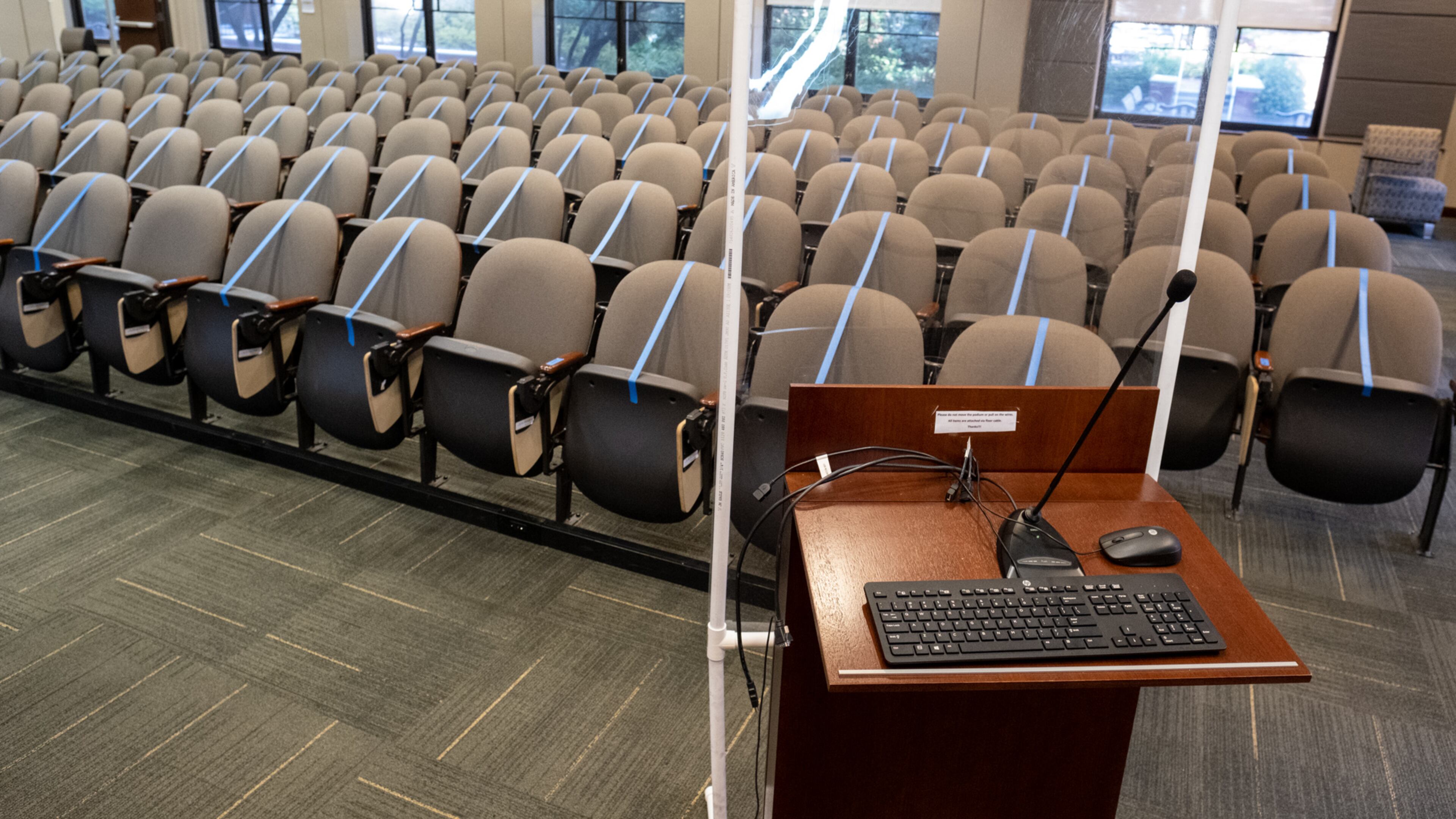Colleges pledged more in-person classes. Are students on board?

Parents of students attending Georgia public campuses who favored a return to in-person classes created Facebook pages and launched petitions maintaining their children’s academic and social well-being were threatened by prolonged online learning.
The “Keep Georgia Universities Open” Facebook group — for “anyone who believes that keeping colleges open is vital to the health and well-being of Georgia’s young adults” — drew 5,700 members, many of whom emailed college presidents and the Board of Regents, which oversees the state’s 26 public colleges and universities.
In signing petitions to reopen campus buildings, parents shared frustration with paying for classes delivered via screens. “We shouldn’t have to pay thousands of dollars for our kids to sit in their bedrooms watching a Zoom class on a computer and having to teach themselves. We can do YouTube for free. Get back to work and teach our kids like you’re supposed to,” wrote a parent.
Those complaints were heard and heeded. The regents made in-person classes a priority for this new semester, passing a resolution in October “that each campus is to maximize safe in-person instruction; ensure hybrid instruction includes a vast majority of in-person interactive instruction where appropriate and safe.”
That led campuses, including the University of Georgia, to declare their goals for this spring include increasing in-person classes and ensuring that hybrid classes — which blend face-to-face and online components — include significant in-person meetings.
“This semester, 41% of all class sections are being offered face to face — compared to nearly 46% of hybrid class sections and 11% that are fully online. The remaining 2% are internships and similar academic offerings that do not have a comparable format,” said UGA spokesman Gregory Trevor.
Georgia Tech spokesman Blair Meeks said Tech recognized that too many hybrid courses in the fall defaulted to remote delivery, so it made in-person a priority this spring. At Tech, 59% of classes are a hybrid combination of in-person and remote, 34% are fully online and 7% are fully face to face, he said.
This is one of the most discussed topics on social media forums for parents of college students in Georgia. Parents pass around the emails and phone numbers of vice presidents of instruction to lodge complaints that promised hybrid or face-to-face classes have moved online, something the campuses contend should not occur.
“I have two children at UGA and many friends with Georgia Tech students, so I have some knowledge of what’s really going on regarding their attendance in an actual classroom,” an Atlanta parent told me. “Our kids are enrolled, full time, live and dine on campus, but are still in online learning due to the policy to allow the teachers to decide to do in-person or online classes.”
But not all students, even given the opportunity, are returning to classrooms. In an internal communication in late October, UGA Vice President for Instruction Rahul Shrivastav cited a fall student survey suggesting students weren’t flocking to classrooms. “It is clear that many students are not showing up for classes, even when space is not an issue. The survey results on this question — i.e., whether students are attending all face-2-face opportunities — was mixed. Approximately 50% of the respondents agreed or strongly agreed that they were going to their classes. The other 50% disagreed or strongly disagreed,” wrote Shrivastav.
Trevor said those student responses reflected what was happening in the fall at UGA. “In comparison, so far this semester Dr. Shrivastav’s office has received no complaints about students missing in-person classes. In fact, faculty have said anecdotally that class attendance has improved significantly,” said the UGA spokesman.
However, UGA recently encouraged more students to report for in-person classes rather than stay virtual. A campus missive heralded the benefits of showing up in person: “While in class, you are able to get immediate feedback from your professor. These connections are the foundation of learning! Attending class in person helps you commit to the class and tells your professor you are taking their class seriously and are invested in an active learning experience.”
Longtime UGA math professor Joseph H.G. Fu, a faculty leader in urging the University System of Georgia to improve COVID-19 prevention protocols, criticized the promotion of on-site classes as “grossly irresponsible,” citing the pandemic’s surge and “the continuing and complete inadequacy of the UGA institutional response to it.”
Tina Fernandez leads Achieve Atlanta, which assists Atlanta Public Schools students in attending and graduating from college. She said students have offered several reasons for staying online. Some say sitting in a class with safety measures and masks isn’t appealing when they can participate without restrictions from home. Some aren’t motivated to go to class after being remote for so long, and college seniors say they’re just ready to graduate, said Fernandez.
Fernandez said other students feel their campuses lack a real plan to keep them safe and worry about getting COVID-19 and bringing it home to their parents/grandparents.
At the same time colleges are encouraging students to show up for class, they’re also voicing concerns about lapses in safety protocols. For example, while UGA urged students to take advantage of face-to-face classes, Victor K. Wilson, UGA vice president for student affairs, lamented a decrease in students’ adherence to health and safety protocols.
“I understand that we are genuinely fatigued and are ready to simply be with our friends and enjoy UGA the way we know it is meant to be, but in the spirit of moderation we have to keep that in balance,” said Wilson in a campuswide email. “You cannot allow one afternoon’s or night’s opportunity to socialize to take away from future opportunities this semester.”

